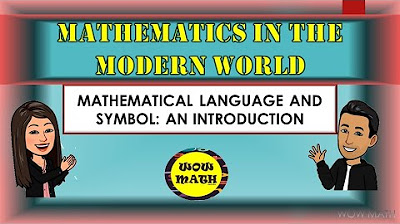Principles of Verbal Communication
Summary
TLDRThis script explores the multifaceted nature of language, emphasizing its symbolic essence and potential for varied interpretations. It distinguishes between denotative, connotative, and etymological meanings, underscoring the importance of clarity in communication to prevent misunderstandings. The speaker also addresses the influence of language on thought and energy, advocating for mindful speech. Additionally, the script delves into language's functional aspects, such as control and information sharing, while cautioning against problematic language use, including bias, sexism, profanity, rudeness, and incivility.
Takeaways
- 🗣️ Language is symbolic and its primary function is to communicate thoughts, ideas, and feelings.
- 🌐 Words can have multiple meanings, so communicators must be clear to avoid miscommunication.
- 📚 There are three types of meanings in language: denotative (dictionary definition), connotative (personal interpretation), and etymological (origin and true meaning).
- 👥 Connotative meaning varies among individuals based on their experiences, which can lead to misunderstandings.
- 🔍 Etiymological meaning is emphasized as the most accurate for clear communication.
- 🗣️ Slang can also be misinterpreted depending on regional differences.
- 💬 Equivocality in language can lead to ambiguity and misinterpretation, especially in political or influential contexts.
- 🧠 Our thoughts shape our language, and conversely, the language we use can influence our thoughts.
- 🔊 Sound vibration in verbal communication transfers energy between people.
- 📜 Language serves multiple functions including control, information sharing, expression of feelings, creativity, and rituals.
- ⚖️ Language can have issues such as bias, sexism, profanity, rudeness, and incivility.
Q & A
What is the definition of language according to the script?
-Language is defined as a system of symbols that we use to communicate our thoughts, ideas, and feelings.
What are the three types of meanings in language discussed in the script?
-The three types of meanings are denotative (dictionary definition), connotative (people's interpretation based on experience), and etymological (true origin of the word).
Why is it important to be mindful of the multiple meanings of words?
-Because words can have multiple meanings, it is crucial to clarify their intended meaning to avoid miscommunication and misunderstanding.
What is equivocal language, and why is it important to avoid it?
-Equivocal language is language that is open to more than one interpretation, making it ambiguous. It is important to avoid it because it can cause confusion and miscommunication.
How does thought influence language according to the speaker?
-Thoughts influence language in that if someone thinks in a righteous or unrighteous manner, it will be reflected in the language they use.
How can language be used as a means of control?
-Language can be used to control others through threats, bribery, or contracts, where people may agree to terms they don't fully understand or agree with due to language complexity.
What is the role of sound vibration in verbal communication?
-Sound vibration is an energetic transfer, where the energy and vibration of words can affect the person being communicated with.
What are some problems with language highlighted in the script?
-The script highlights issues with biased language, sexist language, profane language, rude language, and uncivil language.
How is profane language defined beyond the use of curse words?
-Profane language is not limited to curse words; it includes language that is insulting, rude, vulgar, or disrespectful.
What does the speaker suggest about differing perceptions of rude or profane language?
-The speaker suggests that what is considered rude or profane varies based on individual upbringing, environment, and exposure, and thus perceptions of language differ between people.
Outlines

هذا القسم متوفر فقط للمشتركين. يرجى الترقية للوصول إلى هذه الميزة.
قم بالترقية الآنMindmap

هذا القسم متوفر فقط للمشتركين. يرجى الترقية للوصول إلى هذه الميزة.
قم بالترقية الآنKeywords

هذا القسم متوفر فقط للمشتركين. يرجى الترقية للوصول إلى هذه الميزة.
قم بالترقية الآنHighlights

هذا القسم متوفر فقط للمشتركين. يرجى الترقية للوصول إلى هذه الميزة.
قم بالترقية الآنTranscripts

هذا القسم متوفر فقط للمشتركين. يرجى الترقية للوصول إلى هذه الميزة.
قم بالترقية الآنتصفح المزيد من مقاطع الفيديو ذات الصلة
5.0 / 5 (0 votes)






